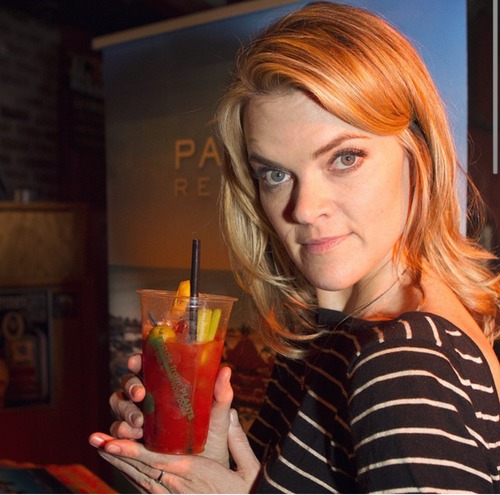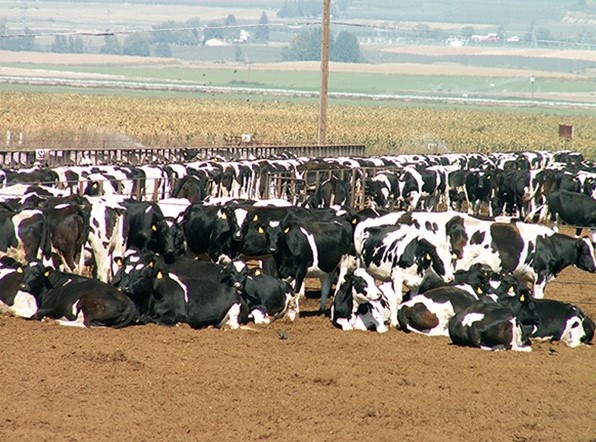HEALTH MINDED . . . 
DEBBIE DURKIN DOES IT AGAIN AT SUNDANCE 2015 Eco-Friendly Lounge a Welcome Respite for Celebs  Celebrity gifting guruess Debbie Durkin is well known for her glitz filled eco-friendly lounges for celebs. The Suncance Eco Lounge 2015 was no exception. Held at Cisero's Bar on zpark City's zmain Street, it attracted stars such as Breaking Bad actor RJ Mitte, Golden Globe-winning actress Gina Rodriguez, and former Real Housewives of Orange County star Gretchen Rossie who indulged in the scrumptious breakfast foods bar, Tito's Vodka Bloody Marys were enjoyed by celebs, and fantastic travel, fashion, and beauty gifts! Celebrity gifting guruess Debbie Durkin is well known for her glitz filled eco-friendly lounges for celebs. The Suncance Eco Lounge 2015 was no exception. Held at Cisero's Bar on zpark City's zmain Street, it attracted stars such as Breaking Bad actor RJ Mitte, Golden Globe-winning actress Gina Rodriguez, and former Real Housewives of Orange County star Gretchen Rossie who indulged in the scrumptious breakfast foods bar, Tito's Vodka Bloody Marys were enjoyed by celebs, and fantastic travel, fashion, and beauty gifts!
The stylish pakems packable shoes were a huge hit with all the celebs. These adorable and fashion-forward light dhoes travel well and are ideal for every activity. After a hard day touring these pakems offer a slip on shoe to renew your feet for yet another day of action. Debbie Durkin's celebrity gifting suite offered luxe vacations to the attending Hollywood stars. Big-name guests received a stay at the Moon Palace Golf & Spa Resort in Cancun, courtesy of Caribbean Living Magazine, who also provided copies of their latest glossy to visitors. Additional sponsors included the Earth-friendly "I Love Independent Films" gift bags by Cafe Press, a fantastic coffee bar by Repurpose Compostables, tasty fruit and nut oatmeal by Modern Oats, and a gift card and all-natural cosmetic sponges by J.Andre. and are ideal for every activity. After a hard day touring these pakems offer a slip on shoe to renew your feet for yet another day of action. Debbie Durkin's celebrity gifting suite offered luxe vacations to the attending Hollywood stars. Big-name guests received a stay at the Moon Palace Golf & Spa Resort in Cancun, courtesy of Caribbean Living Magazine, who also provided copies of their latest glossy to visitors. Additional sponsors included the Earth-friendly "I Love Independent Films" gift bags by Cafe Press, a fantastic coffee bar by Repurpose Compostables, tasty fruit and nut oatmeal by Modern Oats, and a gift card and all-natural cosmetic sponges by J.Andre. The 2015 Sundance EcoLuxeLounge was highly enjoyable and confirms why Debbie Durkin is Hollywood's leader in sustainable celebrity product placement. If Sundance 2016 is on your agenda, don't miss Durkin's EcoLuxeLounge. This suite needs to be at the top of your to do list for next year! Durkin Oscar EcoLuxeLounge February 21 Beverly Hilton, Beverly Hills 
Report by Bonnie Carroll ___________________________________________________________________ EarthTalk®
E - The Environmental Magazine Dear EarthTalk: How is it that antibiotics are being “overused,” as I’ve read, and what are the potential consequences? -- Mitchell Chase, Hartford, CT 
The development and widespread adoption of so-called “antibiotics”—drugs that kill bacteria and thereby reduce infection—has helped billions of people live longer, healthier lives. But all this tinkering with nature hasn’t come without a cost. The more we rely on antibiotics, the more bacteria develop resistance to them, which makes treating infections that much more challenging. According to the U.S. Centers for Disease Control and Prevention (CDC), overuse of antibiotics by humans—such as for the mistreatment of viral infections—means these important drugs are less effective for all of us. Besides the toll on our health, researchers estimate that antibiotic resistance causes Americans upwards of $20 billion in additional healthcare costs every year stemming from the treatment of otherwise preventable infections. A bigger issue, though, is our growing reliance on feeding antibiotics to livestock for growth promotion, weight gain and to treat, control and prevent disease. This increasingly common practice is a significant factor in the emergence of antibiotic-resistant bacteria, which the U.S. Food & Drug Administration (FDA) acknowledges can get passed onto humans who eat food from treated animals. The non-profit Environmental Working Group (EWG) reports that the majority of the ground beef and ground turkey sold in the typical American grocery store contains antibiotic-resistant bacteria. Last year, 26 animal pharmaceutical companies voluntarily complied with an FDA request to re-label medically important antibiotics used in food-producing animals to warn against using them for growth promotion and weight gain. FDA also recommended that medically important antibiotics be prescribed by licensed veterinarians and only to treat, control and prevent disease. “We need to be selective about the drugs we use in animals and when we use them,” says William Flynn of the FDA’s Center for Veterinary Medicine. “Antimicrobial resistance may not be completely preventable, but we need to do what we can to slow it down.” Still some worry that the FDA’s action doesn’t go far enough, given that farmers will still be able to administer antibiotics to their livestock for disease prevention. The fact that more and more livestock operations are switching over to Animal Feeding Operations (AFOs) whereby animals are confined in crowded enclosures (instead of allowed to graze at pasture) means that antibiotics will play an increasingly important role in disease prevention. For its part, the FDA argues that since veterinarians need to authorize antibiotic use for disease prevention, farmers and ranchers are less likely to overuse antibiotics for their livestock populations. The same can be said about doctors’ limiting the prescription of antibiotics for their human patients, but only time will tell whether such newfound restraint is enough in the fast evolving arms race between bacteria and our antibiotics. Of course, consumers can do their part by avoiding antibiotic medications unless absolutely necessary and eating less meat (or giving it up entirely) to help reduce demand. CONTACTS: CDC, www.cdc.gov; EWG, www.ewg.org; FDA Center for Veterinary Medicine, www.fda.gov/AnimalVeterinary. EarthTalk® is written and edited by Roddy Scheer and Doug Moss and is a registered trademark of E - The Environmental Magazine (www.emagazine.com). Send questions to: earthtalk@emagazine.com.
|





